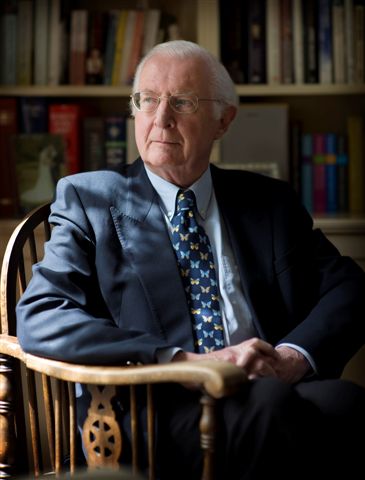The BBC report the suicide and background of Canadian Adam Maier-Clayton who took his life in April 2017, aged 27, following a history of psychiatric illness including a condition that left him in extreme pain. The video which forms part of the report shows Adam and his parents clearly explaining their point of view, together with some opposing opinions.
Adam’s illness was diagnosed as Somatic Symptom Disorder, “a psychiatric condition characterised by physical complaints that aren’t faked but can’t always be traced to a known medical illness”. Adam experienced “crippling physical pain throughout his body” which he described as like being “burned with acid”.
Adam believed his condition to be incurable, following years of trying different treatments. He wanted to have a medically assisted death, but although right-to-die legislation was introduced in Canada in 2016, this only covers cases where death is “reasonably foreseeable”, so excludes people like Adam’s.
A young person taking their own life, perhaps especially when done so for psychiatric reasons, seems far more tragic to most of us than when someone chooses a medically assisted death after living a reasonably long life, which they now feel is complete, due to worsening and incurable physical illness. One of the difficulties, with cases such as Adam, is that it is unclear whether the patient will recover. A younger person can generally be expected to live longer to “see what happens”. Doctors naturally want to play safe, pursuing all possibilities of the patient returning to an acceptable quality of life. That is the argument given by critics of Adam’s choice in the BBC article. However what the article fails to clarify is what the evidence is.
We hear much of “evidence-based medicine”, but where is the evidence in cases such as this? For example:
What proportion of people with similar conditions to Adam eventually regain an acceptable quality of life (either by recovering or by learning to cope with their symptoms)?
How long, on average, does it take for them to regain acceptable quality of life? What are the longest and shortest periods one could reasonably expect?
How bad can the symptoms of people in similar situations get? For example, might Adam, had he decided to stay alive longer in the hope that his condition would improve, run the risk of losing the mental or physical ability to end his life if he later decided that his life was intolerable? … or might he run the risk of being sectioned, “for his own protection”, such that he lost his freedom to take his life if he wished? …and if so, for how long?
If psychiatry is unable to give honest and informed answers to questions like these, “evidence-based medicine” is impossible. Doctors presumably should then admit that they don’t know, and should accept that their opinions are little better than those of the patient and his family. This is particularly important in cases like Adam’s which have proven themselves resistant to all treatments which might have helped. Surgeons and physicians generally accept the decisions of patients who decide against very demanding or unpleasant treatments, particularly if the chance of improvement is low or the extra life expectancy would be small. In a similar way we need to appreciate the limits of what psychiatry is able to achieve, despite is best efforts, and the incurable suffering some patients have to endure as a consequence.
If, on the other hand, the questions above can be answered to some extent, then the patient, with the help of their doctors, has the potential of reaching an informed and carefully considered choice. They can weigh up the chances of returning to an acceptable life, against the experienced pain and difficulty of the current and anticipated condition and the risk that they may never recover. Not an easy decision for anyone. Something that needs time and careful discussion with all involved. What is striking in Adam’s case is that both his parents seem strongly supportive of his decision and believe he should have had the option of a medically assisted death. This suggests that Adam’s decision was based on careful weighing up of the best available evidence.
Some may not agree with Adam’s decision. But in what way do they, as bystanders who don’t have to experience Adam’s condition, have a right to insist that he suffers in a way he finds intolerable for some indeterminate (and presumably long) period of time – possibly for the rest of his life? Does Adam’s situation differ significantly from Omid’s in this respect? (Omid suffers from an incurable physical condition that is not terminal, but reduces his quality of life permanently below the level he can accept.)
Medically assisted suicide is obviously a very last resort, particularly in psychiatric illness. This is reflected in Belgium and Holland where although it is legal, a very small proportion of the total assisted deaths occur in psychiatric cases. However, allowing patients the chance to at least discuss a medically assisted death as one of their options quite often means that they decide not to take it up or postpone it and perhaps try different treatments. The alternative to not being able to discuss it as a possible option can be some extremely distressing and sometimes botched DIY suicides that are much more traumatic for the patient and distressing for the family, than an assisted death.
Further discussion on assisted dying in psychiatric cases can be found in our article regarding depression (particularly the final sections). An interesting discussion of mental illness and assisted dying by a Canadian bio-ethicist is available here. An academic book of papers, mostly by (US) psychiatrists dealing with rational suicide in the elderly is reviewed in detail here. Although it focuses on the elderly, many of the issues are relevant to cases like this, particularly those relating to what steps should be taken by psychiatrists to prevent someone ending their life.













Recent Comments